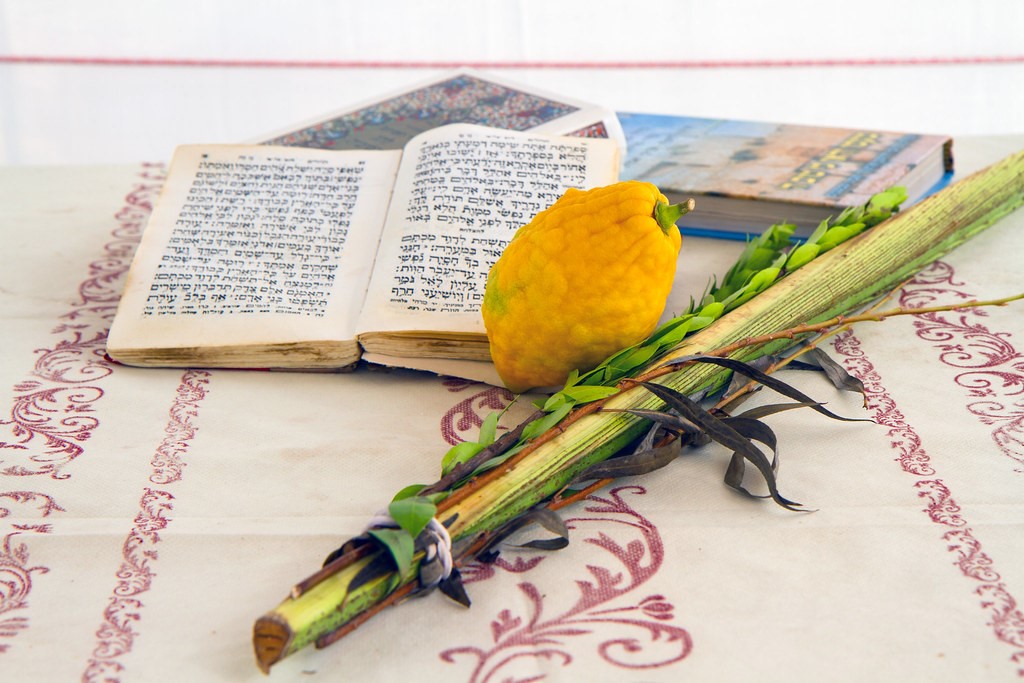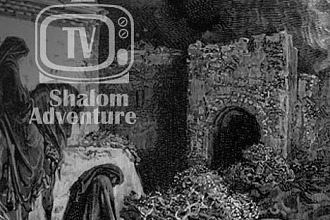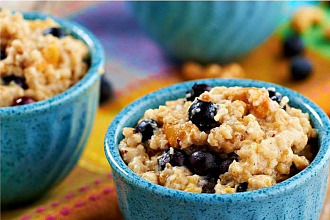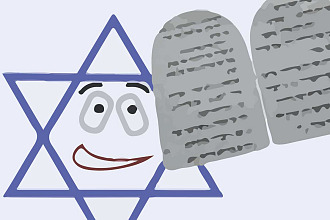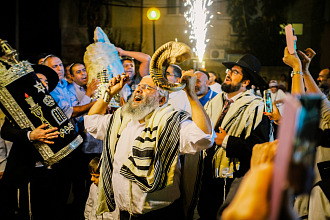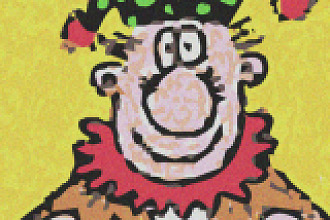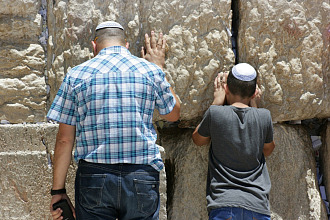Second only to the sukkah as prominent symbols of this feast of Sukkot are the Arba'at Ha-minim, the four species, which are gathered in keeping with the commandment found in Leviticus 23:40.
Making up "the four species" are the following (Scripture references in parenthesis are from CJB version of Lev. 23:40; the Rabbinical descriptions for each of the species was retrieved from Barney Kasdan's God Appointed Times):
An etrog, or citron, a lemon-like fruit from Israel ("choice fruit"). The etrog, with its sweet taste and pleasant smell, is representative of a "person with knowledge of the Torah and good deeds."The lulav, or palm branch ("palm fronds"). The fruit of this branch being sweet, yet without fragrance, is said by rabbis to represent "people [who] have knowledge, but no good deeds."The hadas, or myrtle ("thick branches") has a nice aroma, yet is tasteless, thereby symbolic of the person possessing "good deeds without true knowledge."And an arava, or willow ("river-willows"). This last of the four species contains "neither taste nor smell, [representing] the person who lacks both knowledge and deeds."
(We contend that no person but One, our Messiah, could ever be classified as that which the etrog represents. The prophet Isaiah attests to this when he says that even the best of our deeds are but filthy rags before a Holy God (Isa. 64:6). Rav Paul, too, acknowledged that even with his years of Rabbinical training, prior to His encounter with Yeshua, that he was "ignorant" (1 Tim. 1:13). Yeshua alone is perfect in Torah knowledge and adherence. The rest of us may attain some level of Torah literacy and obedience, but still are found desperately wanting. Without Messiah, mankind can only be represented by one of the remaining three "species.")
Once the four species are gathered, prior to outset of the festival, they are bundled together, with the palm branch occupying the central position. Once wrapped together, The components of the lulav (called such because of the palm branch's central position), mustn't come apart, as the four species together are said to represent the tetragrammaton, or the four Hebrew characters for the Holy Name of the God of Israel.
On each evening of the festival, special blessings are recited over the lulav. The lulav is then "waved in every direction, symbolizing the harvest and God's omnipresence over His world" (Kasdan).
It is not uncommon to witness the lulav being waved at synagogue services, accompanied by chants of the Hallel, or Praise Psalms (i.e. Ps. 113-118), including this familiar entreaty to God from Psalm 118:26: "Ana Adonai Hoshiana!" (Save us Lord!).

